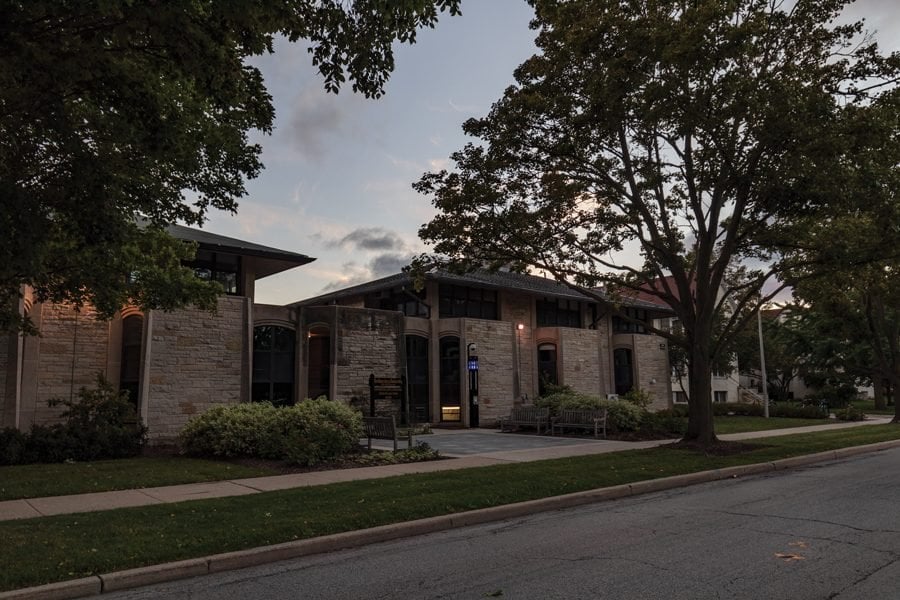Northwestern students adapt to new circumstances for summer internships
Daily file photo by Alec Carroll
Northwestern Career Advancement Center. Underclassmen reflected on the challenges of applying to internships during the pandemic.
June 24, 2020
Amid a global pandemic, college students and adults alike have experienced unprecedented changes to their work and futures. With many employers instituting major layoffs, the job market is looking significantly more bleak.
This climate brings an added pressure to college students who typically use their summer breaks for internships, research or full time work. As internships got canceled or moved remotely, Northwestern students were forced to quickly adapt and find new ways to spend the summer.
Weinberg senior Nikita Marcou was supposed to participate in clinical lab research at the National Institutes of Health this summer, a highly competitive program. Within a week of coming home, Marcou found out her internship was canceled. While the experience would have greatly helped her graduate school applications, Marcou said she remains positive.
“I don’t think it’s going to hurt me because everyone applying is facing the same impact; no one’s in a lab right now getting ahead,” Marcou said. “It’s disappointing, but with everything else going on in the grand scheme of things, this is not the biggest deal.”
Marcou is not alone at trying to remain optimistic during this time. SESP sophomore Ethan Rosen’s internship at Samlyn Capital was supposed to give the Glencoe native an opportunity to experience summer in New York City before it turned to a virtual format.
Rosen said he was looking forward to working in an environment that would give him a sense of his potential future workplace. However, despite the online nature and the program shortening from five weeks to four, Rosen remains grateful for the opportunities that still remain.
“Some employers are going to do great things to make the program beneficial, while some others won’t,” Rosen said. “For those who have a beneficial experience, that’s great and for those who don’t, you live and learn and are ready for next year.”
Similarly, Communications sophomore Zach Forbes’ internship was moved to a virtual platform. However, this internship was not Forbes’ plan A — or even plan B. As a theater student, Forbes was interested in participating in programs that would build his skills. However, these were transferred to a virtual environment and the price was not reduced.
As a first generation, low-income student, Forbes said this was not practical for him.
“The programs didn’t cancel on me, my life circumstances had to cancel on the programs,” Forbes said. “Do I really want to pay to be doing something virtually when I really don’t have to do it at all?”
Now, Forbes is working at a theater studio as an educational intern, assisting teachers in teaching virtual classes to children.
While this isn’t how he thought his summer would be, he’s enjoying it — and so are the children.
“As someone in a creative field, having challenges necessitates being more creative and inherently gives you other opportunities, even if they’re not the ones you might want,” Forbes said.
In South Korea, where the COVID-19 cases have dramatically decreased compared to the United States’, Medill sophomore Allison Rhee is working in-person at her production internship at a magazine, but with increased precautionary measures.
Rhee said she wears a mask on her way to work and frequently sanitizes her hands, however, life inside the office has not changed much.
“I escaped the worst in America and Korea so my life hasn’t really changed,” Rhee said. “It’s been affected, but not so drastically.”
While this summer looks different for many people, students like Rosen are trying to use the remote internship experience as an opportunity for growth.
“If you strictly look at it as a penalty, you’re not going to gain as much from it. Take it for what it is, learn from it, use it as a learning experience,” Rosen said. “Optimism is key, not many people can say they had a virtual internship.”
Email: [email protected]
Twitter: @rebecca_aizin
Related Stories:
– Recession could spell long-term losses for Generation Z
– Students find other arrangements for summer practicum amid COVID-19
– 1,000 more students than last year enroll in summer classes












